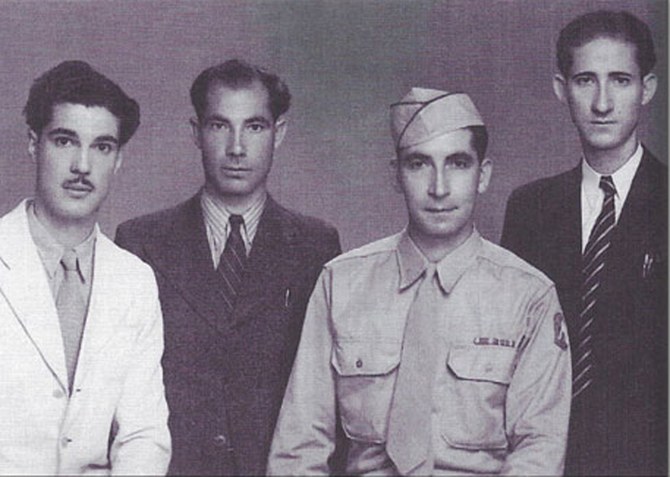Chicago: US President Joe Biden this week issued a lengthy statement recognizing April as Arab American Heritage Month, noting on Friday that “the Arab American story is the American story” and should be recognized formally by all Americans.
Biden said that Arab Americans, like all of the nation’s ethnic groups, had contributed to defining America as a country welcoming of immigrants and the cultures they brought with them, serving in the US military and in every profession.
However, Biden said that despite the contribution made to the nation, many Arabs continue to face racism and discrimination.
“This month, we join together to celebrate the immeasurable contributions of Arab Americans to our nation and recommit ourselves to the timeless work of making sure that all people have the opportunity to achieve the American Dream,” Biden said during a briefing on March 31.
“Sadly, we also recognize that, even as Arab Americans enrich our nation, many continue to face prejudice, bigotry, and violence — a stain on our collective conscience. Hate must have no safe harbor in this country. We must affirm that sentiment again and again. That is why, on my first day in office, I issued the proclamation on Ending Discriminatory Bans on Entry to the United States, which harmed the Arab American community. I also signed an executive order charging the federal government with advancing equity for historically underserved communities, including Arab Americans. I was proud to host a first-of-its-kind United We Stand Summit at the White House and announce new measures to help communities prevent and respond to hate-based threats, bullying and harassment.”
Biden established an interagency group to “coordinate” the federal government’s efforts to fight antisemitism and Islamophobia, and is exploring ways to include Arabs in the 2030 US Census drive, leaning toward adding to the census questionnaire the phrase “MENA” (Middle East and North Africa) rather than the word “Arab.”
For many years, Arabs in only a few states such as Michigan, Illinois, California, Washington D.C., Arizona and Texas celebrated Arab American Heritage Month individually and during different months of the year.
That changed in 2017 when Arab American leaders launched a coordinated effort to designate one month, April, as Arab American Heritage Month. In 2018, Illinois became the first state to pass a law officially recognizing April as Arab American Heritage Month.
Since then, 44 other states have approved proclamations recognizing April as Arab American Heritage Month and Arab contributions to American society.
In 2022, the recognition of April as Arab American Heritage Month received a major boost when Biden became the first US president to recognize it as an official national commemoration.
“We have seen a steady progression, first to bring Arab Americans together to recognize one month to celebrate our rich cultural heritage, and we have seen many Americans and elected officials support this important designation,” said American Arab Chamber of Commerce of Illinois President Hassan Nijem who was instrumental in getting the law passed in 2018.
“Last year, President Biden recognized April nationally as Arab Heritage Month and it has been followed by proclamations and declarations from members of Congress, state governors and legislatures in 45 states. We still have a way to go, but the recognition of the contributions of Arab Americans to the richness of this country is undeniable.”
Several Biden administration officials and department heads issued statements affirming April as Arab American Heritage Month. On April 1, US Secretary of State Antony Blinken, speaking for the Biden administration, issued a proclamation honoring Arab American Heritage Month.
“Last year, President Biden became the first US president to declare April as National Arab American Heritage Month, in recognition of the contributions of Arab Americans to the United States that are as old as America itself. Americans of Arab heritage have advanced the nation’s achievements in diplomacy, science, technology, as well as in art and culture,” Blinken said.
“Arab Americans have also been at the forefront of the fight for civil rights and social justice. We mark National Arab American Heritage Month by celebrating the rich culture and heritage of Arab Americans and honoring the contributions to this country, including proudly here at the Department of State.”
The Democratic National Committee Chairman Jaime Harrison joined the DNC’s Ethnic Council Chairman James Zogby, also the president of the Arab American Institute, in issuing a statement saluting Arab culture during April Arab American Heritage month.
“This Arab American Heritage Month, we celebrate the culture, contributions, and achievements of Arab Americans across our country. This vibrant and diverse community, with roots in 22 countries in the Middle East and North Africa and numerous cultural and religious traditions, represents the best of who we are,” a statement released on Saturday by the DNC read.
“President Biden understands that, and it is why the Biden-Harris administration recognized April as National Arab American Heritage Month for the first time nationally in 2021. On behalf of the Democratic Party, we’re proud to celebrate and support Arab Americans for the tremendous impact they have on our party and country.”
From schools to government agencies and public organizations, Americans are celebrating Arab American Heritage Month. The New York City Public Schools, for example, listed a variety of ways in which classrooms and students can learn more about Arab American history.
The Arab American National Museum located in Dearborn, Michigan, is offering a “virtual tour” of Arab American history.
Google Classrooms and “1001 Inventions” have partnered to provide digital access to interactive stories about lesser-known pioneer men and women, primarily from the Arab world, to help spark young people’s interest in science while promoting diversity and inclusion in their own online exhibition.
Several Arab American leaders said that the celebrations were muted slightly in deference to the observance of Ramadan, the important Islamic religious commemoration observed by Muslims during the ninth month of the Islamic calendar by fasting from sunrise to sunset, and in prayer and through community reflection.
In a show of unity with Muslims, many Christian-owned restaurants limit their business hours until after the sunset iftar, and temper public celebrations.
“In Illinois, we will be hosting events at the end of the month of April Arab American Heritage Month as an act of respect,” Nijem said, noting that Cook County Treasurer Maria Pappas, who annually recognizes the achievements of the region’s ethnic groups, will host a special Arab American Heritage gathering on May 1 at her offices in Chicago.
The Arab Chamber also has several events planned for the last week of April after Ramadan concludes, Nijem said.













